Vietnam – Efforts to find the Vietnamese pond turtle, Mauremys annamensis in the wild yielded a major success last week when a young female turtle was successfully trapped by biologists in central Vietnam. In April of 2006 the Asian Turtle Program carried out its fourth major survey in central Vietnam aimed at identifying a site where a wild population of Vietnamese pond turtles might survive. During the April survey, local residents in a small community not too far from historic Hoi An (Quang Nam province) produced several live specimens that they had reportedly caught locally. Subsequent interviews with other residents in the community and a local turtle hunter suggested that the pond turtles could still be found seasonally in local streams and a small lake complex.
In late November, a field team led by Tim McCormack and Nguyen Xuan Thuan revisited the community to complete a project feasibility assessment, in preparation for a site-based project planned by the Asian Turtle Program that would include active conservation measures aimed at protecting turtles at the site, and establishment of a monitored release and head-start initiative at an appropriate site in the area utilizing turtles born at the Cuc Phuong Turtle Conservation Center.
During the assessment, several traps were tested in the local lake complex, and after three days of trapping, a single specimen was recovered from one of the traps. Although specimens have been observed in the trade and being kept in local communities, such observations have become less frequent in recent years, which is most likely an indication of reduced numbers in the wild. The Vietnamese pond turtle’s lowland habitat is also under tremendous pressure from agricultural expansion, aquaculture, and development.
While hunters have clearly had little difficulty finding Vietnamese pond turtles in the wild, the field team’s finding clearly is the first known documented record for Mauremys annamensis, captured within its habitat, since 1941.
Thank you:

 The Asian Turtle Program wishes to thank the Human Society International and the German Ministry of Environment for their generous support.
The Asian Turtle Program wishes to thank the Human Society International and the German Ministry of Environment for their generous support.
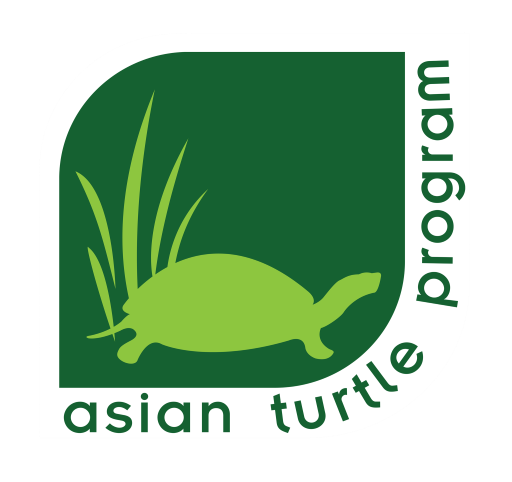
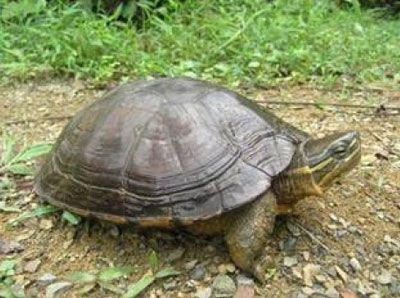
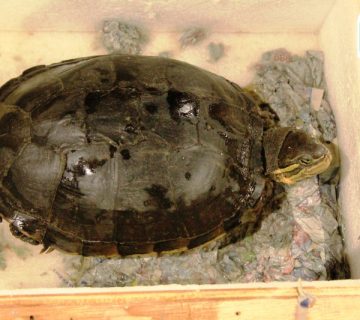
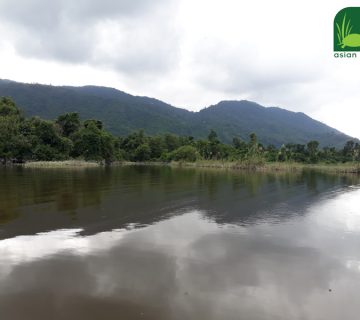
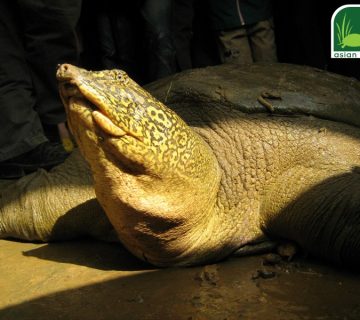
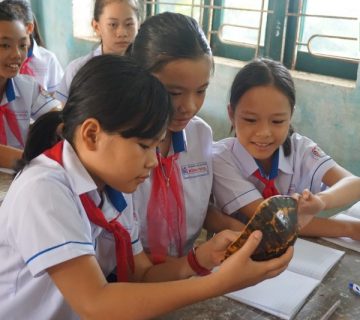
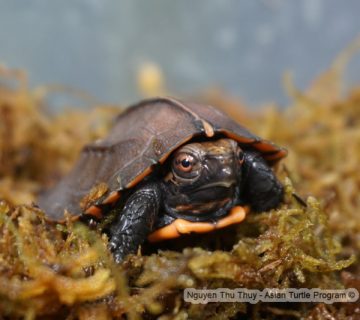
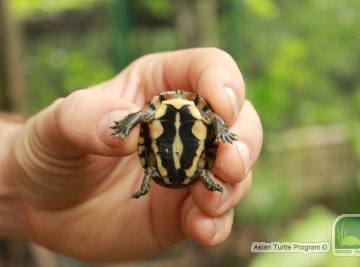
No comment